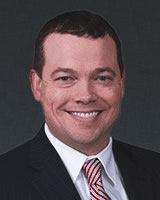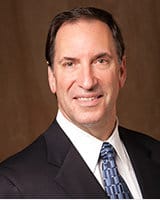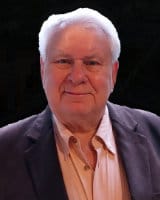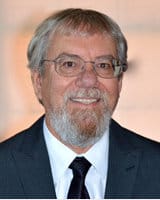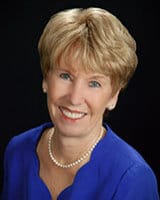Covid 19

What an outrageous year 2020 was for the dental profession, along with the rest of society. Dentists were literally on the front line of dealing with the Covid crisis, being in the very mouths of patients and then creating an aerosol while we were there to complete the potential for spreading the infection.
The profession shut down for the most part from March to June as dentists geared up for how to treat patients and how to avoid creating super spreader events all day every day. Dentists were busy acquiring protective equipment, trying to retain staff, assuring patients, and all the other protocol and requirements that had to be implemented when they went back to work. The experience was reminiscent of the 1980's when AIDS was a fearsome and unknown disease that was every bit as frightening as Covid. Even then, dentists learned how to treat victims of that disease while protecting themselves, their staff and other patients.
The dental profession's approach to such dangerous situations was exemplary – dentists did not shrink away from the pathogens, but quickly and effectively learned to safely neutralize them in their daily practice.
From a financial aspect, the effects of Covid were very unexpected to me. Given months of production lost, gearing up for Covid protocol, extra time involved in providing treatment, patient bases where jobs, income and insurance were lost, and just the plain unknown negative factors, I expected to see revenues and cash flow deeply damaged.
From a transition perspective, I had no idea what individual dentist's response would be to a whole new world of transition dynamics. Would the market be flooded with practices for sale and dentists trying to escape? Would doors just be closed without even an effort to sell? Would there be any market at all for practices when buyers are looking at the practice scene with utter confusion? Would our traditional practice acquisition lenders have any appetite for lending to anyone brave enough to buy a practice in those troubled times?
While many experts offered intelligent, well-reasoned, logical analysis and projections, I don't believe that any of them had a bead on what was going to happen other than coincidentally. There were many parts moving in unpredictable directions and there was no way of knowing how they would all amalgamate at the end of the day.
We all heard the stories that dentists were going to get frightened and frustrated and flood the market with their practices, selling them for pennies on the dollar. At least that's what I heard from potential buyers. Then I heard that practices were going to be selling for premium prices and that it was going to be a seller's market. At least that's what practice owners were saying.
What really happened last year, and is still ongoing, really surprised me. What I saw was the normal number of sellers listing their practices with me. There was not a flood of sellers who screamed "Doctor says sell!!" There was the normal urgency for a sale, and while sellers were ready to close on their sale, their hair was not on fire. So in my experience I didn't see a change in the market of sellers.
I was then curious to see how owners' financial performance for the year was. I gave a lot of thought to how to account for the time that practices were closed. Eventually I settled on a technique for annualizing the time the practice was open. For example if the practice was open with a normal schedule for ten months in 2020, I divided the total year end revenues by 10 and then multiplied by 12, just as I would annualize October 31 figures in any normal year.
This approach is not carved on any stone tablet and I agree it is an arbitrary approach to handling the data. I make no attempt to convince anyone else of its validity, but simply use this approach as a tool to analyze the data in order to draw a fair and precise comparison to other more normal years.
What I discovered surprised me in several ways. In every practice that I analyzed, the projected annualized revenues for 2020 were higher than the actual revenues for 2019! That was a real shocker since all of the empirical evidence pointed to less revenues. So why were the revenues higher than normal? You should have asked me thirty years ago when I knew everything, but I can only speculate about the reasons and decided it really didn't matter anyway. The revenues are what they are.
I do have one hunch as to the cause though. I've always heard that when we take time off from work that we are more productive when we return with freshly charged batteries. If this were the case, given the average three months off in the Spring, it would explain these results. A good takeaway would be that in order to have a most productive year, we should be taking more time off.
Another question and concern over Covid was how would our lenders respond to the epidemic's effect. In a typically caring and gracious measure, most all of the practice acquisition lenders that I work with voluntarily postponed monthly payments for current buyers, simply adding those payments to the end of the loan without even adding a premium for interest.
Our specialty lenders had varying approaches to lending going forward. Some tucked in their horns and withdrew while they tried to figure out what was going on and what to expect going forward. Others aggressively approved and funded loans for the buyers who wanted practice ownership, so overall there was no shortage of money for buyers who needed a loan to buy a practice, which, let's face it, was everyone.
While lenders were all scrambling with how to address the pandemic by asking for more individual monthly profit and loss reports, creating Covid questionnaires, and any other efforts that they could think of, I was surprised how liberal they were with granting loans considering that all the data that they could gather still didn't give them a crystal ball to know exactly what the outcome would be. My humble but expert opinion here, I think they continued lending based on their trust, respect and confidence gained by their history of lending to dentists. Dentists work through problems and they pay their loans.
Considering that the default rate on dental loans is under a half of one percent, when the average bank loan portfolio has a default rate of four times that rate, and even hitting near 9% in 2009 – 2010, lenders know that dentists are the safest borrowers they could hope for. Most all of my lender relationships accepted my method of annualizing 2020 revenues and others just called 2020 a one-off and depended on 2019 revenues. Dentists' creditworthiness really paid off.
Finally, how did the buyer market react to the pandemic? I logically expected that no one would want to buy a closed dental practice last Spring and I was right. But after practices reopened, buyer activity was back to normal and maybe a little higher. I heard from associates that Covid resulted in practice slow-downs and that their schedules, and paychecks were cut back or they were just fired. Many of these at-effect dentists decided that if there were going to be future repeats of those circumstances that they wanted to be the owner and not the one being cut back or fired. They wanted to be the last man standing and ownership was the only way they saw to do that.
In summary, here's what I learned from last year's events. I learned to place a lot more confidence in hearing what had actually happened than in hearing what was going to happen. There were a lot of always certain, never right voices out there and self proclaimed experts who were generally broadcasting a self-serving message. Note to self – watch out for them.
But after watching the world go upside down, inside out, and be thrown through fiery hoops as we experienced a once in a lifetime (hopefully) event that caused tremendous suffering, pain, death, insolvency, isolation and so much more misery than we ever could have imagined in our lifetime, we learned a very important fact. At the end of the day, the good luck and fortune of being a dentist spared our professionals from the enormous pain that so many others have been experiencing, leaving us in nearly in as good of a shape as when this all began.
Testimonial from a Satistfied Dentist
"Thank you! I really appreciate all the work you did to make this deal happen, I couldn’t have done it without you and Megan. It was a tough road with the challenges of dealing with NPT and lack of guidance on the seller’s side, but overall I think we were successful in getting what I wanted and I am grateful for that. Thanks again."
Laurent Pilon, DMD
Covid 19

What an outrageous year 2020 was for the dental profession, along with the rest of society. Dentists were literally on the front line of dealing with the Covid crisis, being in the very mouths of patients and then creating an aerosol while we were there to complete the potential for spreading the infection.
The profession shut down for the most part from March to June as dentists geared up for how to treat patients and how to avoid creating super spreader events all day every day. Dentists were busy acquiring protective equipment, trying to retain staff, assuring patients, and all the other protocol and requirements that had to be implemented when they went back to work. The experience was reminiscent of the 1980's when AIDS was a fearsome and unknown disease that was every bit as frightening as Covid. Even then, dentists learned how to treat victims of that disease while protecting themselves, their staff and other patients.
The dental profession's approach to such dangerous situations was exemplary – dentists did not shrink away from the pathogens, but quickly and effectively learned to safely neutralize them in their daily practice.
From a financial aspect, the effects of Covid were very unexpected to me. Given months of production lost, gearing up for Covid protocol, extra time involved in providing treatment, patient bases where jobs, income and insurance were lost, and just the plain unknown negative factors, I expected to see revenues and cash flow deeply damaged.
From a transition perspective, I had no idea what individual dentist's response would be to a whole new world of transition dynamics. Would the market be flooded with practices for sale and dentists trying to escape? Would doors just be closed without even an effort to sell? Would there be any market at all for practices when buyers are looking at the practice scene with utter confusion? Would our traditional practice acquisition lenders have any appetite for lending to anyone brave enough to buy a practice in those troubled times?
While many experts offered intelligent, well-reasoned, logical analysis and projections, I don't believe that any of them had a bead on what was going to happen other than coincidentally. There were many parts moving in unpredictable directions and there was no way of knowing how they would all amalgamate at the end of the day.
We all heard the stories that dentists were going to get frightened and frustrated and flood the market with their practices, selling them for pennies on the dollar. At least that's what I heard from potential buyers. Then I heard that practices were going to be selling for premium prices and that it was going to be a seller's market. At least that's what practice owners were saying.
What really happened last year, and is still ongoing, really surprised me. What I saw was the normal number of sellers listing their practices with me. There was not a flood of sellers who screamed "Doctor says sell!!" There was the normal urgency for a sale, and while sellers were ready to close on their sale, their hair was not on fire. So in my experience I didn't see a change in the market of sellers.
I was then curious to see how owners' financial performance for the year was. I gave a lot of thought to how to account for the time that practices were closed. Eventually I settled on a technique for annualizing the time the practice was open. For example if the practice was open with a normal schedule for ten months in 2020, I divided the total year end revenues by 10 and then multiplied by 12, just as I would annualize October 31 figures in any normal year.
This approach is not carved on any stone tablet and I agree it is an arbitrary approach to handling the data. I make no attempt to convince anyone else of its validity, but simply use this approach as a tool to analyze the data in order to draw a fair and precise comparison to other more normal years.
What I discovered surprised me in several ways. In every practice that I analyzed, the projected annualized revenues for 2020 were higher than the actual revenues for 2019! That was a real shocker since all of the empirical evidence pointed to less revenues. So why were the revenues higher than normal? You should have asked me thirty years ago when I knew everything, but I can only speculate about the reasons and decided it really didn't matter anyway. The revenues are what they are.
I do have one hunch as to the cause though. I've always heard that when we take time off from work that we are more productive when we return with freshly charged batteries. If this were the case, given the average three months off in the Spring, it would explain these results. A good takeaway would be that in order to have a most productive year, we should be taking more time off.
Another question and concern over Covid was how would our lenders respond to the epidemic's effect. In a typically caring and gracious measure, most all of the practice acquisition lenders that I work with voluntarily postponed monthly payments for current buyers, simply adding those payments to the end of the loan without even adding a premium for interest.
Our specialty lenders had varying approaches to lending going forward. Some tucked in their horns and withdrew while they tried to figure out what was going on and what to expect going forward. Others aggressively approved and funded loans for the buyers who wanted practice ownership, so overall there was no shortage of money for buyers who needed a loan to buy a practice, which, let's face it, was everyone.
While lenders were all scrambling with how to address the pandemic by asking for more individual monthly profit and loss reports, creating Covid questionnaires, and any other efforts that they could think of, I was surprised how liberal they were with granting loans considering that all the data that they could gather still didn't give them a crystal ball to know exactly what the outcome would be. My humble but expert opinion here, I think they continued lending based on their trust, respect and confidence gained by their history of lending to dentists. Dentists work through problems and they pay their loans.
Considering that the default rate on dental loans is under a half of one percent, when the average bank loan portfolio has a default rate of four times that rate, and even hitting near 9% in 2009 – 2010, lenders know that dentists are the safest borrowers they could hope for. Most all of my lender relationships accepted my method of annualizing 2020 revenues and others just called 2020 a one-off and depended on 2019 revenues. Dentists' creditworthiness really paid off.
Finally, how did the buyer market react to the pandemic? I logically expected that no one would want to buy a closed dental practice last Spring and I was right. But after practices reopened, buyer activity was back to normal and maybe a little higher. I heard from associates that Covid resulted in practice slow-downs and that their schedules, and paychecks were cut back or they were just fired. Many of these at-effect dentists decided that if there were going to be future repeats of those circumstances that they wanted to be the owner and not the one being cut back or fired. They wanted to be the last man standing and ownership was the only way they saw to do that.
In summary, here's what I learned from last year's events. I learned to place a lot more confidence in hearing what had actually happened than in hearing what was going to happen. There were a lot of always certain, never right voices out there and self proclaimed experts who were generally broadcasting a self-serving message. Note to self – watch out for them.
But after watching the world go upside down, inside out, and be thrown through fiery hoops as we experienced a once in a lifetime (hopefully) event that caused tremendous suffering, pain, death, insolvency, isolation and so much more misery than we ever could have imagined in our lifetime, we learned a very important fact. At the end of the day, the good luck and fortune of being a dentist spared our professionals from the enormous pain that so many others have been experiencing, leaving us in nearly in as good of a shape as when this all began.
ADS South
Testimonial from a Satistfied Dentist
"I have been personally involved in several practice transitions and found this to be the easiest by far."
John Portwood, Jr., DDS
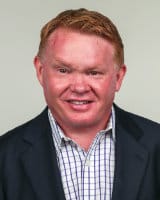
 Add me to your address book
Add me to your address book